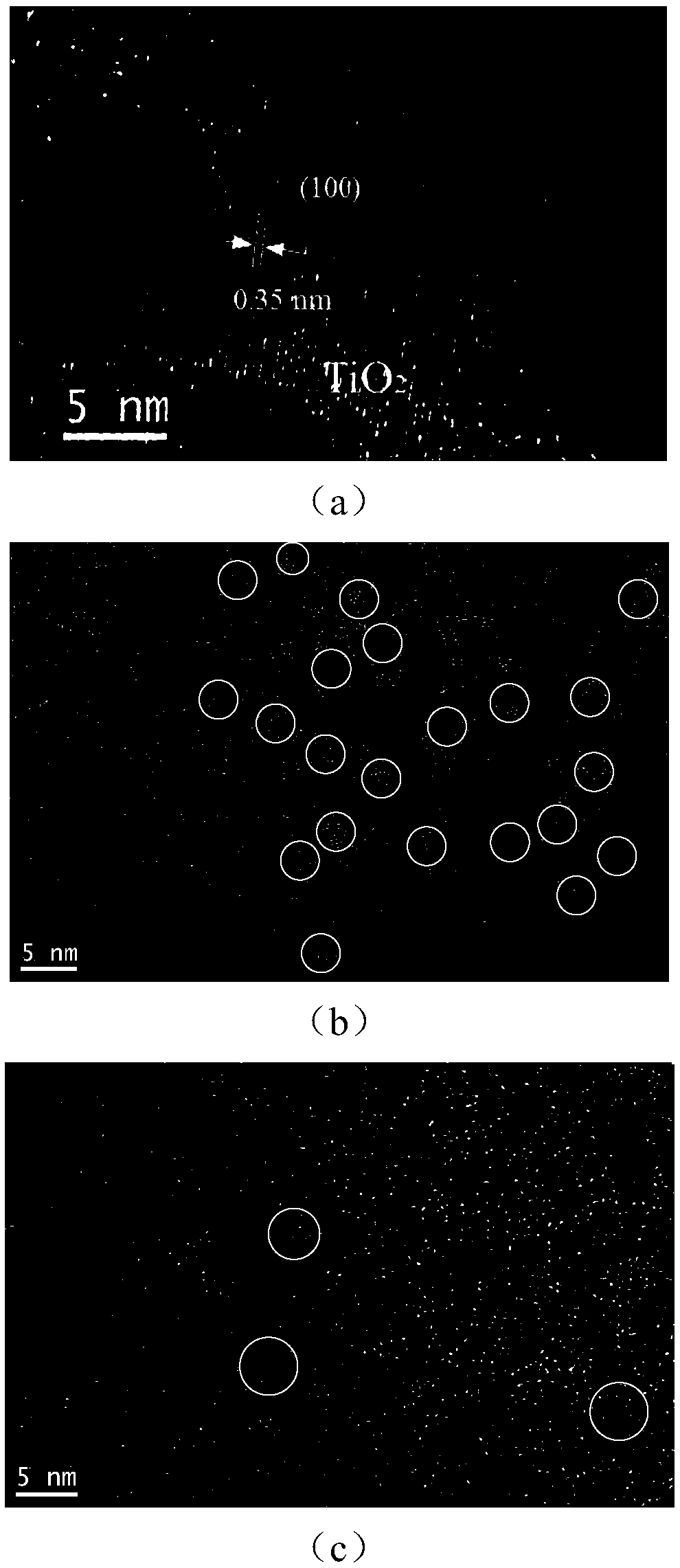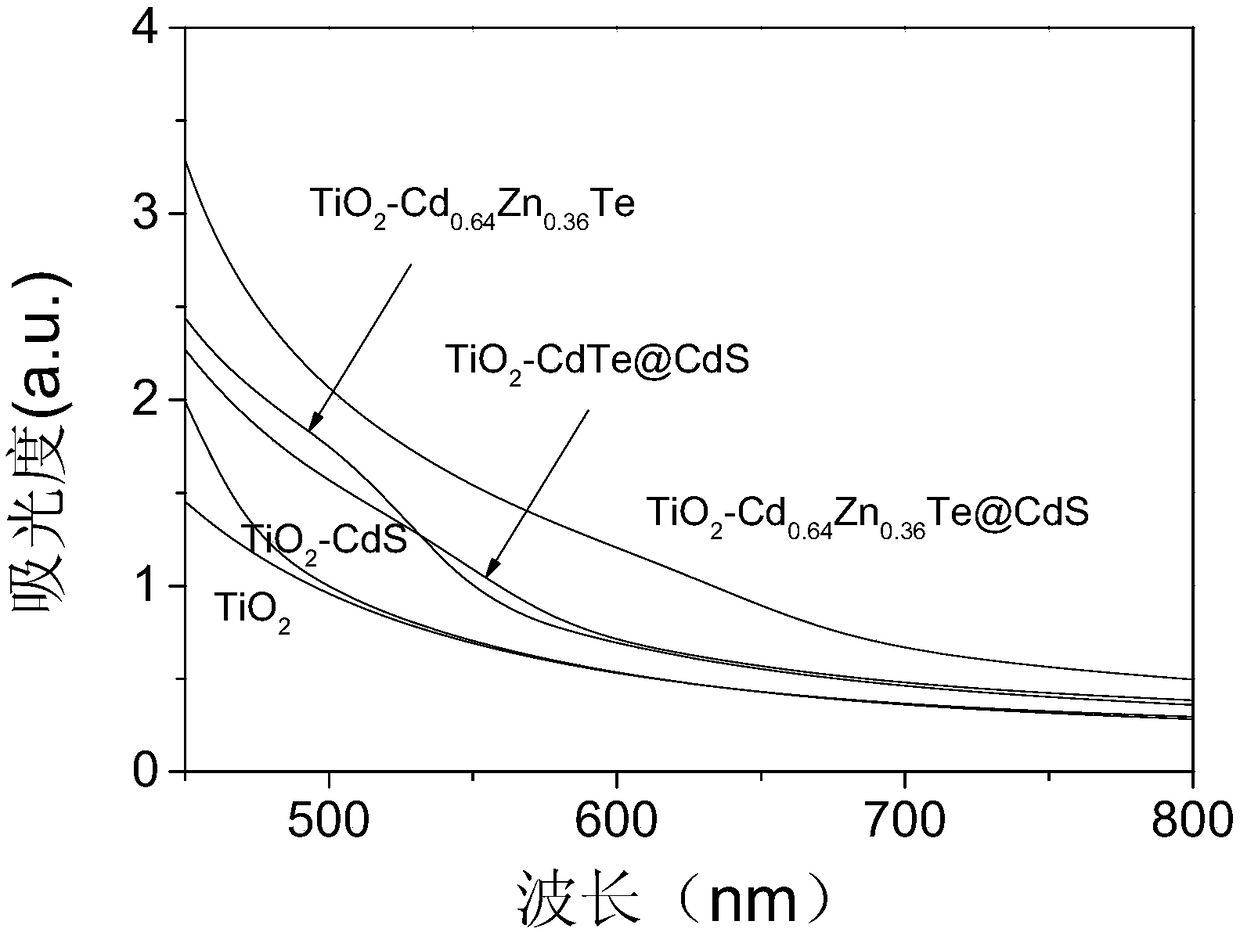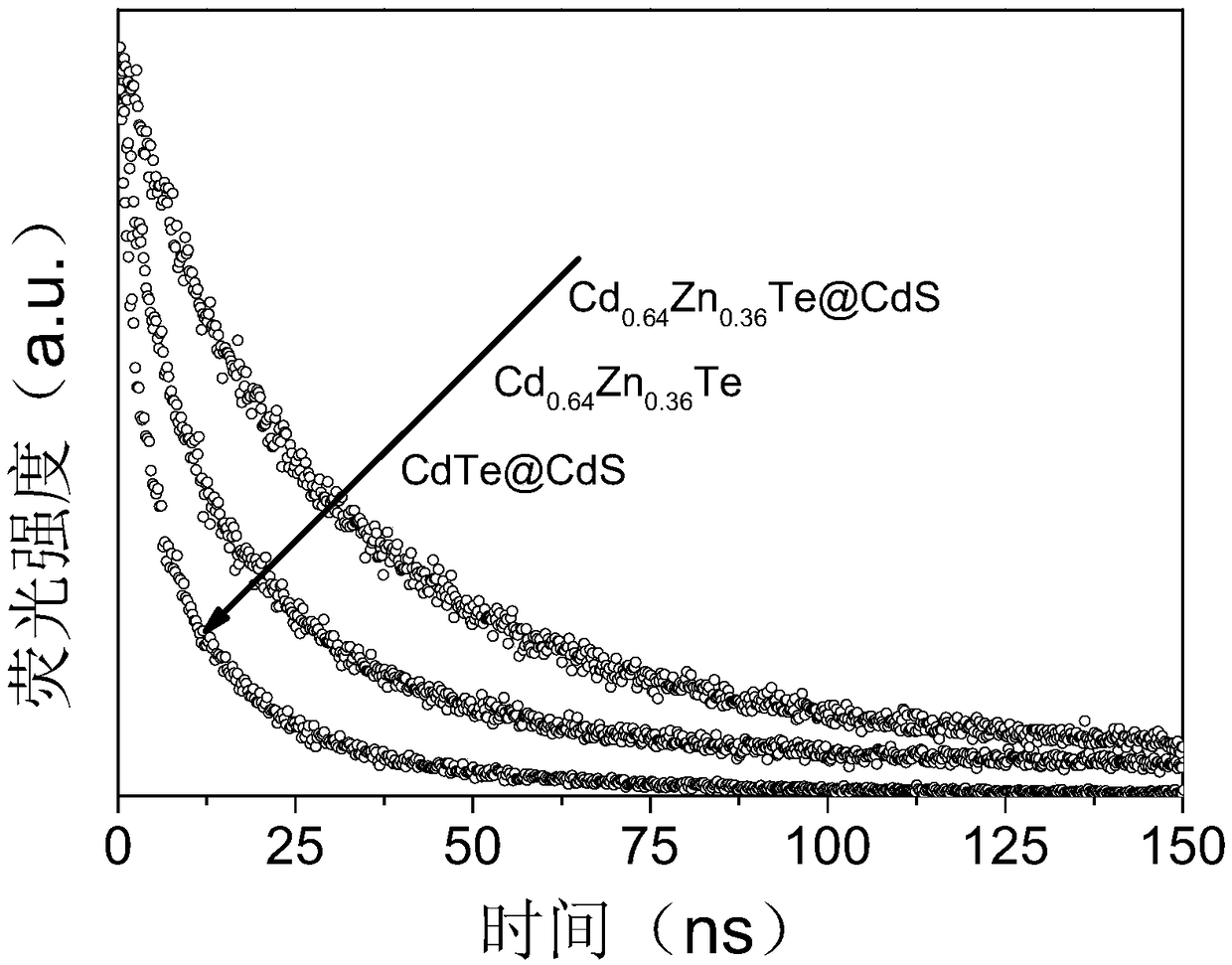II-type core-shell structure quantum dot and preparation method and application thereof
A core-shell structure, quantum dot technology, applied in the field of sensitized solar cells, can solve problems such as the elimination of unfavorable holes, and achieve the effects of loose shell thickness, reduced difficulty, and excellent photoelectric conversion efficiency
- Summary
- Abstract
- Description
- Claims
- Application Information
AI Technical Summary
Problems solved by technology
Method used
Image
Examples
Embodiment 1
[0054] (1) Preparation of titanium dioxide dense layer:
[0055] TiO by screen printing 2 The slurry (P25) is evenly spread on the screen, and the material is scraped lightly and quickly with a scraper. Then place the conductive surface of the conductive glass directly under the screen plate, and quickly scrape TiO 2 The paste allows it to be printed onto conductive glass. TiO 2 The film was placed in a sealed box with a small amount of ethanol, and stood for 3 minutes. Under the atmosphere of ethanol vapor, the TiO 2 The film is naturally leveled, transferred to an oven, and dried at 125°C.
[0056] (2) Preparation of Cd by aqueous phase method 0.64 Zn 0.36 Te (feeding ratio Cd / Zn=1 / 1) quantum dots:
[0057] Sodium borohydride and tellurium powder are used as raw materials, deionized water is used as a solvent, and a transparent sodium telluride hydride solution is formed by reacting at 30°C for 2-3 hours in a nitrogen atmosphere. with CdCl 2 , ZnCl 2 As raw materia...
Embodiment 2
[0081] (1) Preparation of titanium dioxide dense layer:
[0082] TiO by screen printing 2 The slurry (P25) is evenly spread on the screen, and the material is scraped lightly and quickly with a scraper. Then place the conductive surface of the conductive glass directly under the screen plate, and quickly scrape TiO 2 The paste allows it to be printed onto conductive glass. TiO 2 The film was placed in a sealed box with a small amount of ethanol, and stood for 3 minutes. Under the atmosphere of ethanol vapor, the TiO 2 The film is naturally leveled, transferred to an oven, and dried at 125°C.
[0083] (2) Preparation of Cd by aqueous phase method 0.37 Zn 0.63 Te (feeding ratio Cd / Zn=1 / 3) quantum dots:
[0084] Sodium borohydride and tellurium powder are used as raw materials, deionized water is used as a solvent, and a transparent sodium telluride hydride solution is formed by reacting at 30°C for 2-3 hours in a nitrogen atmosphere. with CdCl 2 , ZnCl 2 As raw materia...
Embodiment 3
[0092] (1) Preparation of titanium dioxide dense layer:
[0093] TiO by screen printing 2 The slurry (P25) is evenly spread on the screen, and the material is scraped lightly and quickly with a scraper. Then place the conductive surface of the conductive glass directly under the screen plate, and quickly scrape TiO 2 The paste allows it to be printed onto conductive glass. TiO 2 The film was placed in a sealed box with a small amount of ethanol, and stood for 3 minutes. Under the atmosphere of ethanol vapor, the TiO 2 The film is naturally leveled, transferred to an oven, and dried at 125°C.
[0094] (2) Preparation of Cd by aqueous phase method 0.14 Zn 0.86 Te (feeding ratio Cd / Zn=1 / 7) quantum dots:
[0095] Sodium borohydride and tellurium powder are used as raw materials, deionized water is used as a solvent, and a transparent sodium telluride hydride solution is formed by reacting at 30°C for 2-3 hours in a nitrogen atmosphere. with CdCl 2 , ZnCl 2 As raw materia...
PUM
| Property | Measurement | Unit |
|---|---|---|
| particle diameter | aaaaa | aaaaa |
| thickness | aaaaa | aaaaa |
| thickness | aaaaa | aaaaa |
Abstract
Description
Claims
Application Information
 Login to View More
Login to View More - R&D
- Intellectual Property
- Life Sciences
- Materials
- Tech Scout
- Unparalleled Data Quality
- Higher Quality Content
- 60% Fewer Hallucinations
Browse by: Latest US Patents, China's latest patents, Technical Efficacy Thesaurus, Application Domain, Technology Topic, Popular Technical Reports.
© 2025 PatSnap. All rights reserved.Legal|Privacy policy|Modern Slavery Act Transparency Statement|Sitemap|About US| Contact US: help@patsnap.com



